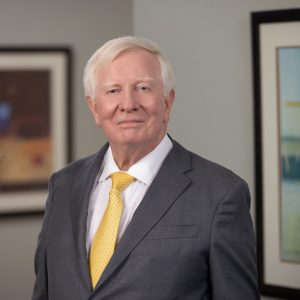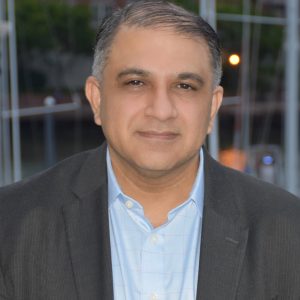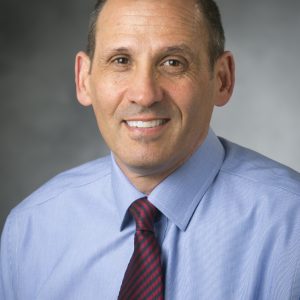CEO Leadership Series: Francois Nader, MD, Chairman, Acceleron Pharma Inc.
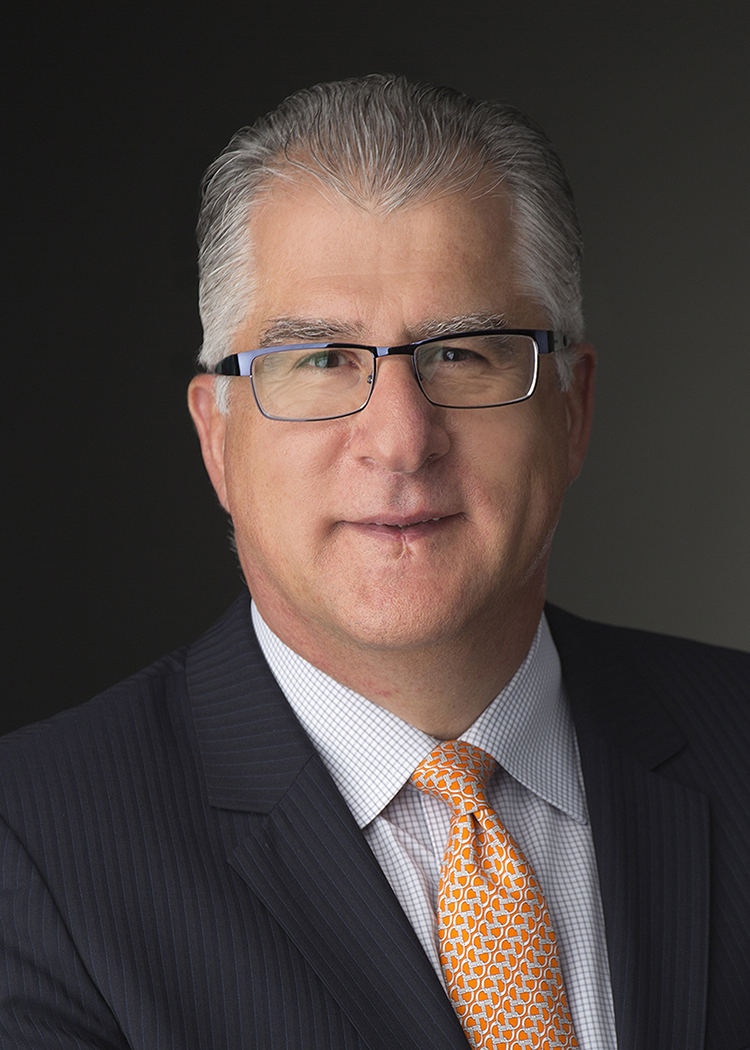
WHY CULTURE IS THE KEY TO A COMPANY’S SUCCESS
Dr. Francois Nader knows something about the importance of embracing a culture, whether it’s on a personal or professional level. He earned a medical degree in Beirut and has worked in France, Canada, Kansas City, Mo. and New Jersey.
Dr. Nader has also directed the complete turnaround of a struggling biopharmaceutical company – starting with the organization’s culture.
When he became the CEO of NPS Pharmaceuticals Inc. in 2008, Dr. Nader drew on decades of experience in the biopharma industry and his own personal values to reverse the company’s plummeting fortunes. “NPS was really in a downspin mode. Just believing that we could create something out of failure was a huge challenge. But fast forward, those who believed in us and believed in NPS’ transformation were very handsomely rewarded when we sold the company.” In 2015, the Dublin-based Shire Plc bought the now-thriving NPS for $5.3 billion.
In an interview with Ashton Tweed, Dr. Nader talks about why he believes that rebuilding a company must start with the corporate culture and what the future holds for him following the sale of NPS:
You’ve lived all over the world, starting in Lebanon. Where did your career in the pharmaceutical industry begin?
I was in France preparing to transition to Montreal when a friend mentioned to me that Sanofi S.A. was looking for a physician to help with its vaccine business on a short-term basis, and I joined Sanofi for a six-month contract. The rest is history.
I was at what is now known as Sanofi Pasteur for about seven years. I ended up becoming the head of the global commercial operations for its vaccine business. Then the company merged with Mérieux, another French vaccine company, and we acquired Connaught Laboratories in Canada.
At that point, in 1990, my family and I decided to move to Montreal where my in-laws lived. There I joined Marion Merrell Dow and was there for three years when I was asked to move to the corporate headquarters in Kansas City, Mo. in 1993. We’ve been in the U.S. ever since.
You’ve experienced a lot of culture change. How have you and your family handled it?
It has been an interesting challenge and a fantastic learning experience to move from one culture to another – some of the moves easier than others. Probably the most challenging was moving from Montreal to Kansas City, at which point our two children, who were 11 and 13 at the time, did not speak English. We were assured there was an English-as-a-Second-Language program in Kansas City, only to find out after we moved that was not the case. So for them it was a very challenging transition from a French culture to an American Midwest culture. Interestingly enough, though, within six months they were fully bilingual. We tried everywhere we went to assimilate ourselves in the local culture. One thing we learned not to do very early on is to compare because each culture, each city, each country offers its unique features that cannot be compared to any others.
What brought you to New Jersey?
Marion Merrell Dow merged with Hoechst Roussel to become Hoechst Marion Roussel, which then merged with Rhône-Poulenc Rorer to form Aventis. The combined company decided that Aventis would be based out of Bridgewater, N.J. So my family and I moved from Kansas City to Bridgewater back in 2000.
How did the opportunity at NPS Pharmaceuticals come about?
When Sanofi acquired Aventis in 2004, I decided to leave the company and joined a life sciences venture capital firm called Care Capital in Princeton. A friend at an executive search firm approached me to join NPS.
But you weren’t initially interested. What changed your mind?
I really had zero interest in joining NPS back then, but I assessed the company, the products and the challenging situation NPS was in and came to the conclusion that I could probably make a difference. I became really excited by the prospect of a turnaround. I saw it as a great opportunity to truly make a difference.
You joined NPS as joint chief medical and commercial officer, which is an unusual combination in the pharma industry. Why is that?
A joint chief medical and commercial officer is a very unique role—I don’t think anyone in the industry ever had this title—because it’s a no-no to have medical and commercial on the same business card. In the pharma industry, there is a Chinese wall, as there should be, between medical and commercial activities. But in a small organization like NPS, I was able to handle both aspects of the business in a really – I would say – schizophrenic way, because they are mentally and operationally very different. At the same time, there is certainly a complement between the medical and commercial activities.
As you said, NPS was in trouble when you joined the company. What were your biggest challenges?
I joined NPS as, for all practical purposes, second in command and worked with the CEO to stop the “bleeding.” That triage was extremely important to keep the company afloat. In phase one of the turnaround, we took the company from 425 people down to about 200 people and closed one of the company’s four sites. We worked with the FDA—unsuccessfully I should say—to try to salvage the indication for our first product, an osteoporosis drug called PREOS. So the first phase was making sure that we kept the company running and stopping and thinking about what we could do next.
In the second phase, I moved from chief medical/commercial officer to COO and then to CEO. By then, I had developed a plan for how to restructure the company, but also to build new vision and a new mission to focus NPS on rare diseases by repurposing our two products from large indications to very small orphan indications.
How did you restructure the company?
We adopted a strategic outsourcing model, which took us from about 200 people down to 17 people. We also shut down our in-house research capabilities. We transformed the NPS business model from a fully integrated pharmaceutical company to a strategic outsourcing model, so it was a fundamental change in the company’s fabric. Then I built NPS back up to 40 people and eventually to 350 by the time we sold the company to Shire. From a turnaround, I am very proud that the NPS team was able to bring two medicines to patients suffering from two rare diseases in 18 countries.
How did this transformation change what was expected of employees?
Most positions in the new business model had to combine a strategic mindset and an operational mindset in only one person. That person had to have the ability not only to do the work but also to manage work done by others, as we had only one person per key function.
How did you change the company culture to fit the organization’s new direction?
We defined a new set of values around the idea that everything we did was really focused on the patients exclusively. We adopted a set of six values that were pretty much our compass and our center in everything we did: integrity, respect, personal accountability, excellence, teamwork and fun. The values became the anchor of the company and ultimately made us successful.
Why is changing the company culture so important?
The underlying common denominator of everything we do in any business environment is the culture of the company. So there are certain behaviors or actions that are encouraged in a given culture and totally frowned upon in another culture – and the way the same action is viewed impacts outcome. For example, you have certain cultures where cutting corners is encouraged; in other situations, cutting corners is absolutely a no-no. Yet, the challenge of building new culture is that the new culture and the new values have to be embraced by everyone.
What advice would you give another CEO who needs to change a company’s culture?
The first piece of advice I would give is to design a culture and come up with values that truly represent you, and what I mean by that is the company culture is a projection of the leader. The values we carry permeate everything we do as a leader and everything we do is magnified hundred times by our employees and by our stakeholders internally and externally. There is nothing called the right culture or the wrong culture; it is whatever we decide the culture is.
My second piece of advice to any leader is make sure that your leadership team embraces and lives these values with no exceptions. The leadership team members project who they are and how they live the values in a very, very magnified way. Every employee looks up to the leadership team to see if what they’re doing is accepted or not based on the values the company has.
And my third piece of advice is do not suffer any exceptions because the minute you tolerate a behavior that is not acceptable within the culture of the company and goes potentially against one of the values, then you completely lose credibility. Once the credibility is lost it’s virtually impossible to recover from a cultural perspective because everyone would eventually remind you of the exception you made by tolerating this or that behavior that was against the culture.
What values represent who you are from a business perspective?
There is no difference between personal and professional values and when I mentioned earlier that leaders should put in place values and culture that represent them, it’s not them professionally, it’s them personally and professionally.
The six values that we set up at NPS represented me and continue to represent me. When we became a global company, we added the value of entrepreneurial spirit because I was very concerned that with the growth of the company, we might lose the entrepreneurial spark that made such a huge difference when we were a small company.
Why is fun one of your values?
I believe very strongly that if someone is not happy doing what they’re doing, they’re probably not doing a good job. In our industry, like in many other industries, you work very, very hard and if people are not having fun doing what they’re doing they probably don’t belong there.
How did the sale of NPS to Shire Plc come about?
It was certainly not our plan to sell the company by any stretch. I stated publicly that our goal as a company was to treat 10 rare diseases in 10 years and we already had two. So I was on a mission with my team to treat eight other rare diseases in 10 years and then my phone rang. The CEO of Shire called and offered to buy NPS.
It was a multiple-month negotiation until we got to the point where the board and I believed that the value that was on the table was a value that the shareholders would accept. It was a tough negotiation and we negotiated very, very hard.
You worked so hard to get NPS back on its feet. Did you have mixed feelings about selling it?
Oh, I had totally mixed feelings. NPS was my baby for many different reasons and we had big ambitions for NPS for the next 10 years. I really enjoyed what we were doing as a team, developing and commercializing products that truly made a difference in the life of patients with rare diseases. But, at the end of the day, the shareholders own the company and I work for them and for the patients. I felt that Shire could take care of our patients given its expertise in rare diseases and I felt that our shareholders would be happy with the share price we negotiated on their behalf.
You’re currently chairman of the board at Acceleron Pharma Inc. and on the boards of several other companies. What’s next for you?
I continue to be very involved with BioNJ as immediate past chairman to promote the biopharma ecosystem within New Jersey. It’s something I’m very passionate about. I’ve started a family foundation focusing on helping individuals transform their passion into action for the benefit of society in the spaces of health, wellness and education. I continue to enjoy my board work and, who knows, for the right opportunity one of these days I might start another venture. Only life and time will say.
Ashton Tweed would like to thank Dr. Francois Nader for this interview. If your company needs help from members of the Ashton Tweed Life Sciences Executive Talent Bank, we can supply that assistance either on an interim or a permanent basis. Additionally, if you are among the many life sciences professionals affected by the changes in the industry, Ashton Tweed can help you find the right placement opportunity — from product discovery through commercialization at leading life sciences companies — including interim executive positions and full-time placements. In either case, please email Ashton Tweed or call us at 610-725-0290. Ashton Tweed is pleased to continue to present insightful articles of interest to the industry.
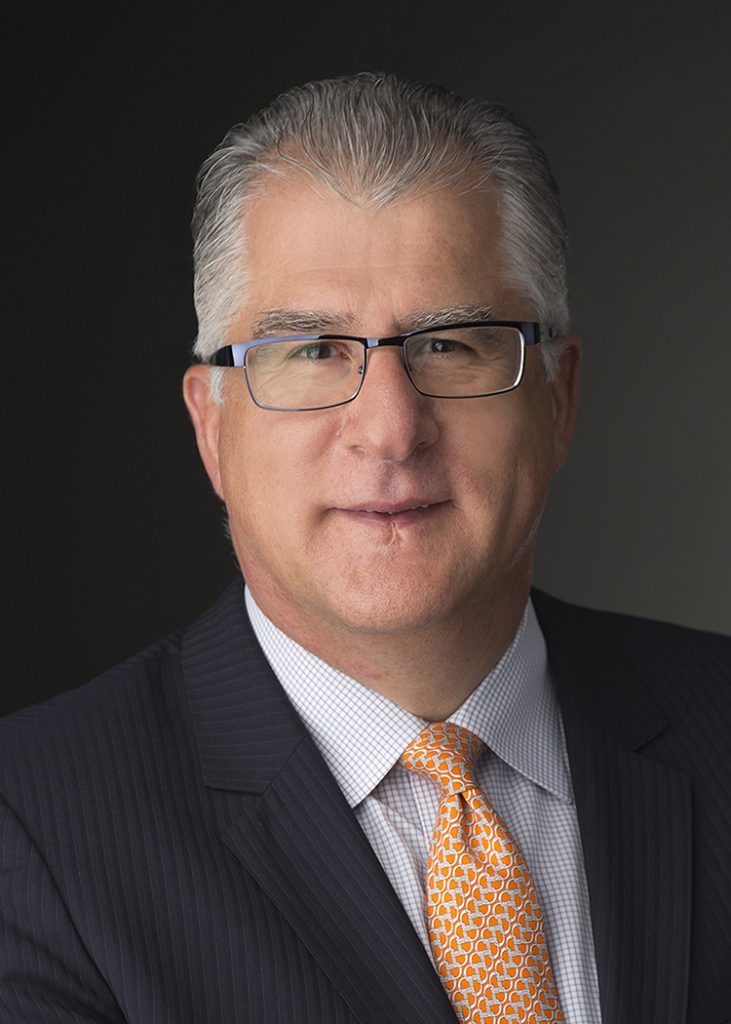
Francois Nader, MD, MBA
Francois Nader, MD, MBA served as chief executive officer and a member of the board of directors of NPS Pharma from 2008 to 2015. He is the chairman of the board of directors at Acceleron Pharma, and a board member at Advanced Accelerator Applications (AAAP) and Clementia Pharmaceuticals Inc. He is also a board member of the New Jersey Chamber of Commerce, and on the advisory board of the Open Future Institute. In 2013, Dr. Nader was honored as the Ernst and Young National Life Science Entrepreneur of the Year. He earned a French Doctorate in Medicine from St. Joseph University in Beirut, Lebanon and a Physician Executive MBA from the University of Tennessee. Dr. Nader and his wife, Micheline, founded the Blue Dolphin Health group of companies that owns and manages long-term care facilities, which they sold in 2011. The Naders have two children and two grandchildren, and the couple divides their time between New Jersey, Miami and Montreal.



